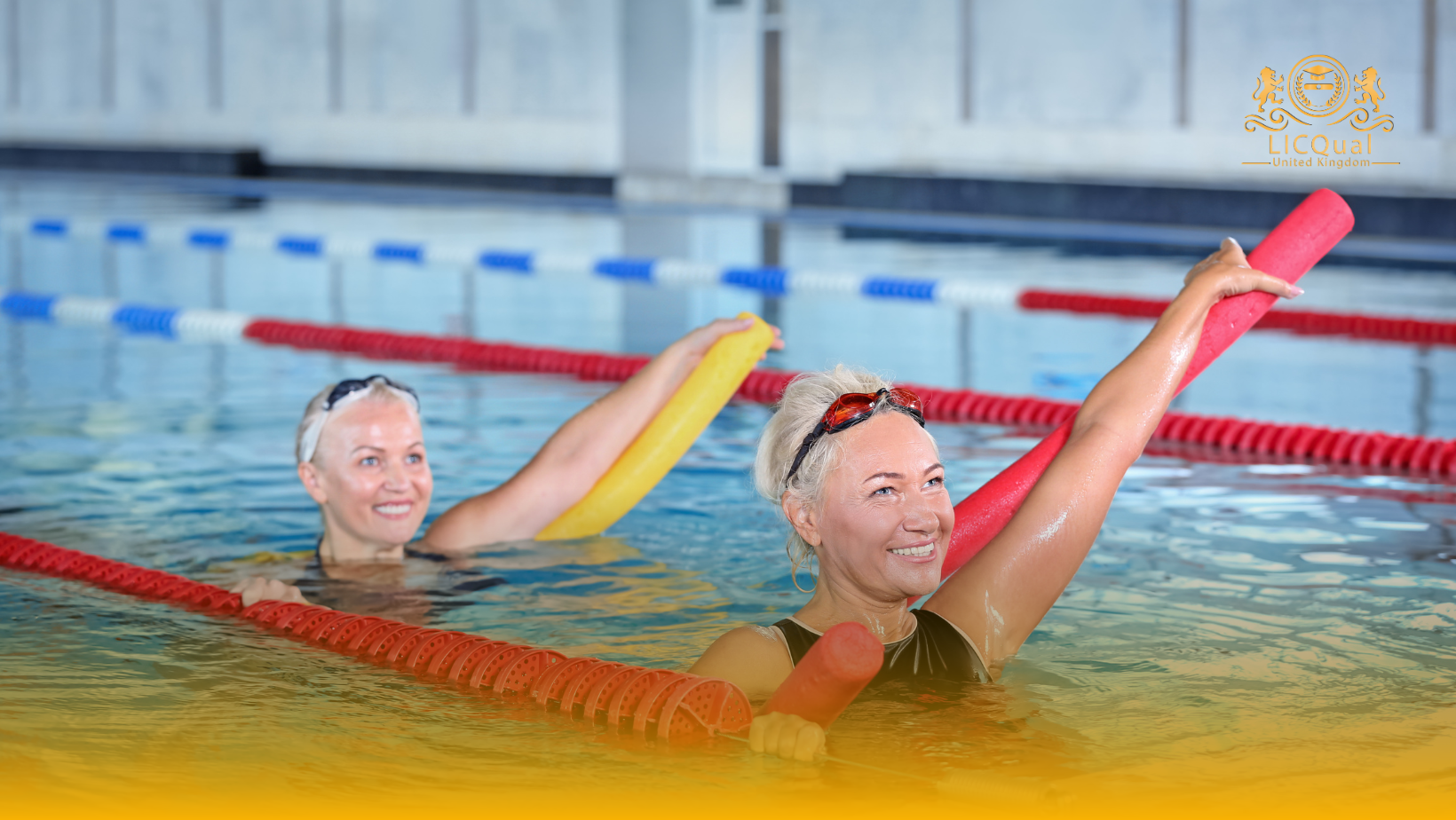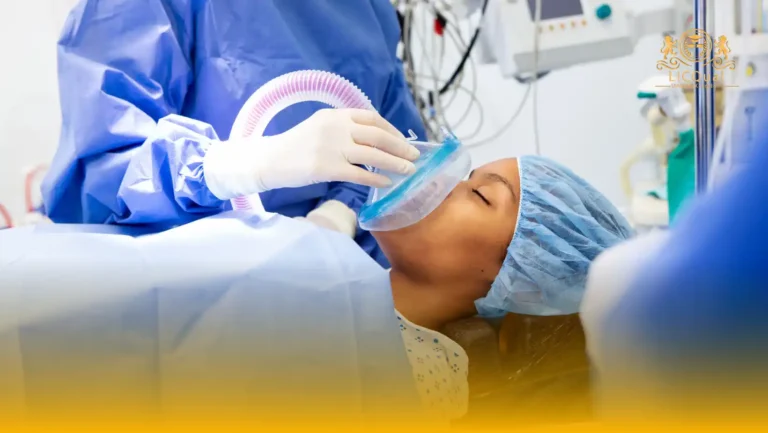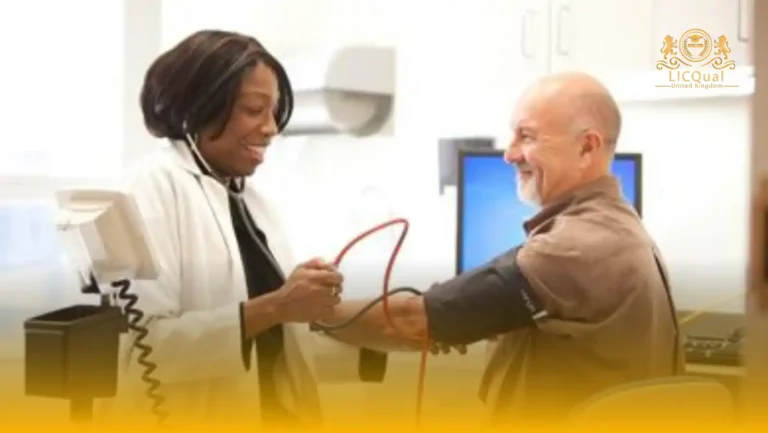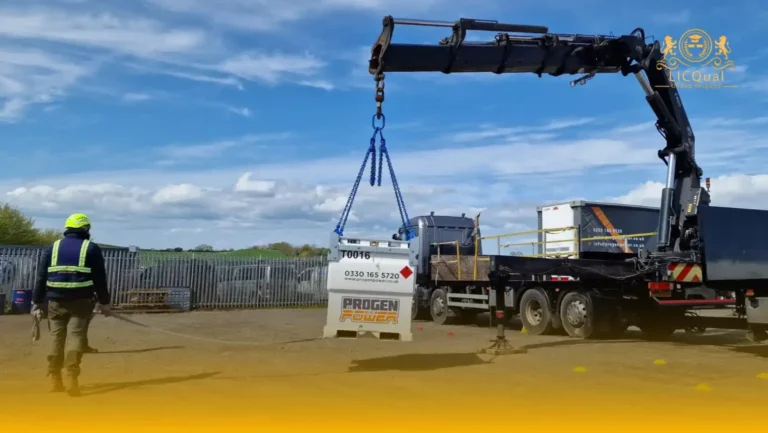The LICQual Level 3 Diploma in Aquatic Therapy Pool Rescue LIGHT (ATPR LIGHT) is a streamlined and practical qualification designed for professionals working in aquatic therapy settings who require essential rescue skills tailored for lighter, low-risk rescue scenarios. This course offers a focused approach to rescue training, emphasizing core techniques that maintain client safety while supporting therapeutic activities.
Aquatic therapy pools present unique challenges due to the specific health needs and mobility limitations of users. The ATPR LIGHT qualification addresses these considerations by providing knowledge and skills that allow practitioners to prevent incidents, identify hazards, and respond effectively to common emergencies with minimal disruption to therapy sessions.
Aligned with international aquatic safety standards, this diploma blends theoretical concepts with practical skills in risk management, rescue techniques, emergency response, and basic first aid tailored to therapy pools. Graduates will be competent in executing essential rescue operations and maintaining a safe environment, ensuring both client wellbeing and compliance with health and safety regulations.
Ideal for aquatic therapists, pool attendants, rehabilitation assistants, and healthcare workers in therapy pool environments, the LICQual ATPR LIGHT qualification enhances safety and emergency preparedness in a practical, accessible format. Whether upgrading skills or meeting regulatory requirements, this diploma equips professionals with the confidence and competence to manage aquatic therapy pool rescues effectively.
Course Overview
Qualification Title
LICQual Level 3 Diploma in Aquatic Therapy Pool Rescue LIGHT (ATPR LIGHT)
Total Units
6
Total Credits
60
GLH
240
Qualification #
LICQ2200625
Qualification Specification
To enroll in the LICQual Level 3 Diploma in Aquatic Therapy Pool Rescue LIGHT (ATPR LIGHT), applicants must meet the following criteria:
|
Qualification# |
Unit Title |
Credits |
GLH |
|---|---|---|---|
|
LICQ2200625-1 |
Overview of Aquatic Therapy Pool Settings |
10 |
40 |
|
LICQ2200625-2 |
Basic Risk Identification and Hazard Control |
10 |
40 |
|
LICQ2200625-3 |
Fundamental Rescue Techniques for Aquatic Therapy Pools |
10 |
40 |
|
LICQ2200625-4 |
Emergency Response Procedures and Basic First Aid |
10 |
40 |
|
LICQ2200625-5 |
Effective Communication and Incident Coordination |
10 |
40 |
|
LICQ2200625-6 |
Professionalism, Ethics, and Continuous Improvement in Aquatic Therapy |
10 |
40 |
By the end of this course, learners will be able to:
1. Overview of Aquatic Therapy Pool Settings
By the end of this unit, learners will be able to:
- Describe the key features and client demographics of aquatic therapy pools.
- Understand safety challenges specific to low-risk aquatic therapy environments.
- Identify the roles and responsibilities of staff within therapy pool settings.
2. Basic Risk Identification and Hazard Control
By the end of this unit, learners will be able to:
- Recognize common hazards present in aquatic therapy pools.
- Conduct simple risk assessments relevant to therapy pool operations.
- Implement basic control measures to minimize risks and enhance safety.
3. Fundamental Rescue Techniques for Aquatic Therapy Pools
By the end of this unit, learners will be able to:
- Demonstrate essential rescue techniques appropriate for light rescue scenarios in therapy pools.
- Safely approach, support, and assist casualties with mobility or health limitations.
- Use rescue equipment correctly within the constraints of aquatic therapy settings.
4. Emergency Response Procedures and Basic First Aid
By the end of this unit, learners will be able to:
- Provide basic first aid and emergency care suitable for therapy pool incidents.
- Perform initial emergency response actions, including casualty stabilization.
- Recognize when to escalate incidents and call for additional medical support.
5. Effective Communication and Incident Coordination
By the end of this unit, learners will be able to:
- Communicate clearly and calmly with clients, team members, and emergency services during incidents.
- Coordinate rescue efforts efficiently within the therapy pool environment.
- Record and report incidents following organizational and legal protocols.
6. Professionalism, Ethics, and Continuous Improvement in Aquatic Therapy
By the end of this unit, learners will be able to:
- Demonstrate professional behavior and adherence to ethical standards in aquatic therapy.
- Understand the importance of health and safety compliance within therapeutic settings.
- Engage in continuous professional development to enhance rescue and therapeutic competencies.
This LICQual Level 3 Diploma in Aquatic Therapy Pool Rescue LIGHT (ATPR LIGHT) is designed for professionals and individuals who want to improve their aquatic therapy safety skills, gain a recognized qualification, and confidently handle pool-based emergencies.
1. Aquatic Therapists
- Strengthen professional credentials with a Level 3 recognized qualification
- Gain practical skills in pool rescue for therapy sessions
- Improve confidence when supervising patients during aquatic therapy
- Learn emergency response techniques tailored to therapy settings
- Enhance patient safety and reduce risk in water-based exercises
- Apply hands-on rescue skills directly in daily practice
2. Swimming Instructors
- Expand knowledge in pool rescue and emergency management
- Obtain Level 3 LICQual ATPR LIGHT Certification
- Learn to supervise clients of varying abilities safely
- Build confidence managing emergencies in swimming and therapy sessions
- Enhance career opportunities in both therapy and instruction
- Integrate rescue skills into everyday teaching practices
3. Lifeguards and Aquatic Staff
- Master pool rescue skills specifically for therapeutic settings
- Gain hands-on experience in realistic emergency scenarios
- Learn preventative measures to minimize accidents
- Enhance response times and emergency effectiveness
- Meet professional standards for aquatic safety and supervision
- Prepare for higher-level aquatic safety qualifications
4. New Graduates or Career Changers
- Fast-track entry into aquatic therapy or swimming instruction careers
- Gain recognized certification to boost employability
- Build both theoretical and practical skills in pool rescue
- Develop confidence handling aquatic emergencies
- Strengthen professional profile in therapy and swimming industries
- Acquire decision-making and problem-solving skills in water safety
5. Rehabilitation and Fitness Professionals
- Integrate safety and rescue protocols into therapy and fitness programs
- Learn to handle clients with limited mobility in pool sessions
- Ensure patient safety during exercises and therapy sessions
- Improve supervision and risk management in aquatic environments
- Enhance client confidence through safety-focused practices
- Boost credibility as a certified aquatic therapy rescuer
6. Community and Recreational Program Leaders
- Maintain safety in community swimming and therapy programs
- Train volunteers and junior staff in aquatic rescue techniques
- Implement effective emergency response plans
- Supervise groups confidently and professionally
- Promote water safety awareness in community programs
- Ensure compliance with local and national safety standards
7. Competitive Swimming and Therapy Coaches
- Apply rescue techniques during high-intensity therapy or training sessions
- Identify and prevent potential risks in pool environments
- Improve supervision and safety during competitive and therapeutic sessions
- Gain hands-on experience in emergency planning and execution
- Enhance recognition as a certified LICQual ATPR LIGHT instructor
- Maintain high safety standards for all swimmers and therapy clients
Assessment and Verification
All units within this qualification are subject to internal assessment by the approved centre and external verification by LICQual. The qualification follows a criterion-referenced assessment approach, ensuring that learners meet all specified learning outcomes.
To achieve a ‘Pass’ in any unit, learners must provide valid, sufficient, and authentic evidence demonstrating their attainment of all learning outcomes and compliance with the prescribed assessment criteria. The Assessor is responsible for evaluating the evidence and determining whether the learner has successfully met the required standards.
Assessors must maintain a clear and comprehensive audit trail, documenting the basis for their assessment decisions to ensure transparency, consistency, and compliance with quality assurance requirements.







